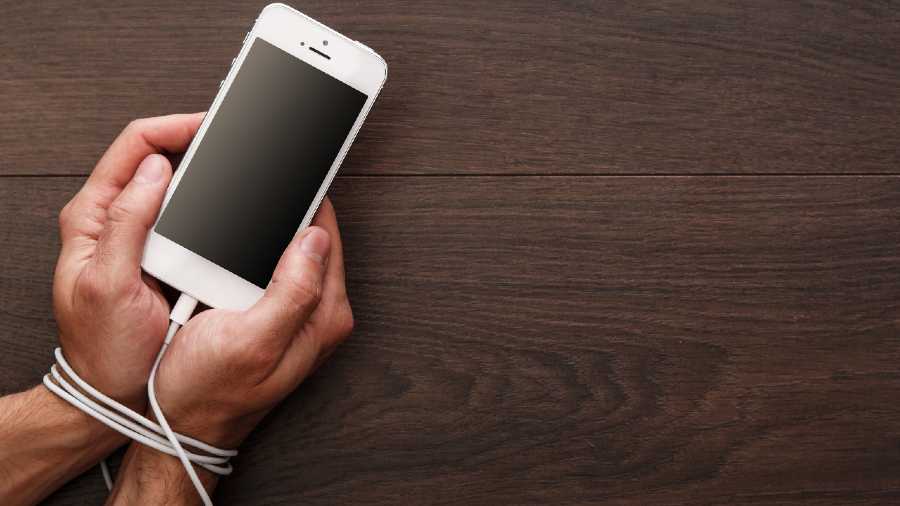Lack of human interaction is one of the main drivers of internet addiction among children and adolescents, doctors and psychiatrists said at a conference on Saturday.
Internet addiction is a real psychological disorder, which affects children’s mental health and needs immediate support from specialists, they said.
“Young people change their online status frequently. Status is a reflection of your mood. Because sometimes we don’t talk, we don’t ventilate. What we then do is we project a status. At least somebody knows what I am going through,” said Manoj Kumar Sharma, professor of clinical psychology at the National Institute of Mental Health and Neurosciences (Nimhans) in Bangalore.
On Saturday, he was among the speakers at a conference on internet addiction at the Institute of Neurosciences-Kolkata.
Sharma had a problem with the word “addict”.
“Avoid the word ‘addict’. Say you are a problematic user or you have a non-adaptive use of technology. Then, it makes more sense. A teenager is looking for meaning in his life. If the parents start calling him an addict, it decreases his self-esteem. What is then left with him? Only a mobile phone. He further clings on to the device. He withdraws himself,” he said.
Sharma said children and teenagers sought in the virtual world what they did not find in the real world.
“In the virtual world, they get acknowledgement. If we don’t get a reply, we send another message. That acknowledgement is significant. Then there is affiliation. How many families are spending time together? We had given a simple task to one family. Spend 30 minutes together. The family got motivated. But when they came back after a week, they said ‘we saved half an hour but we did not know what to do’. So, they went back to technology.
“It creates the feeling of isolation, which leads the child to the world of games. He feels he can interact there,” he said.
Post-Covid, there has been a significant rise in internet addiction among children and adolescents, said doctors. This has had detrimental effects on both physical and social well-being of children and adolescents — like delay in social and speech domain, aggressive anger outbursts, attention issues, low levels of tolerance, slide in academic performance and rising familial conflicts.
Starting September, the department of neuropsychiatry at IN-K will run an internet addiction clinic at the OPD section. The clinic will run every Wednesday, said an official. On Saturday, the clinic was inaugurated by Shashi Panja, minister of women and child development and social welfare department of the state.
At the conference, experts stressed the need for an alternative hobby.
“There are three As to combat internet addiction. Acknowledgement is the first. People should recognise this as a problem. Second is an alternative hobby. It can be reading, playing some sport, karate, swimming, anything that should keep them engaged. The third is action. The parents should spend more time with their children. Sit together for dinner, keeping the phones aside. When we go on a vacation, the use of mobile phones goes down. Because we have new places to see, new things to talk about,” said Praveen Kumar Jakati, child and adolescent psychiatrist and head of the neuropsychiatry department at IN-K.
Excessive use of mobile phones can lead children to crime as well, he said.
“We have seen parents coming to us, saying their wards have taken money from their accounts, without informing them, to play an online game or place bets online. We had to admit a student of Class IX who stole Rs 30,000 from his father’s account,” he said.
